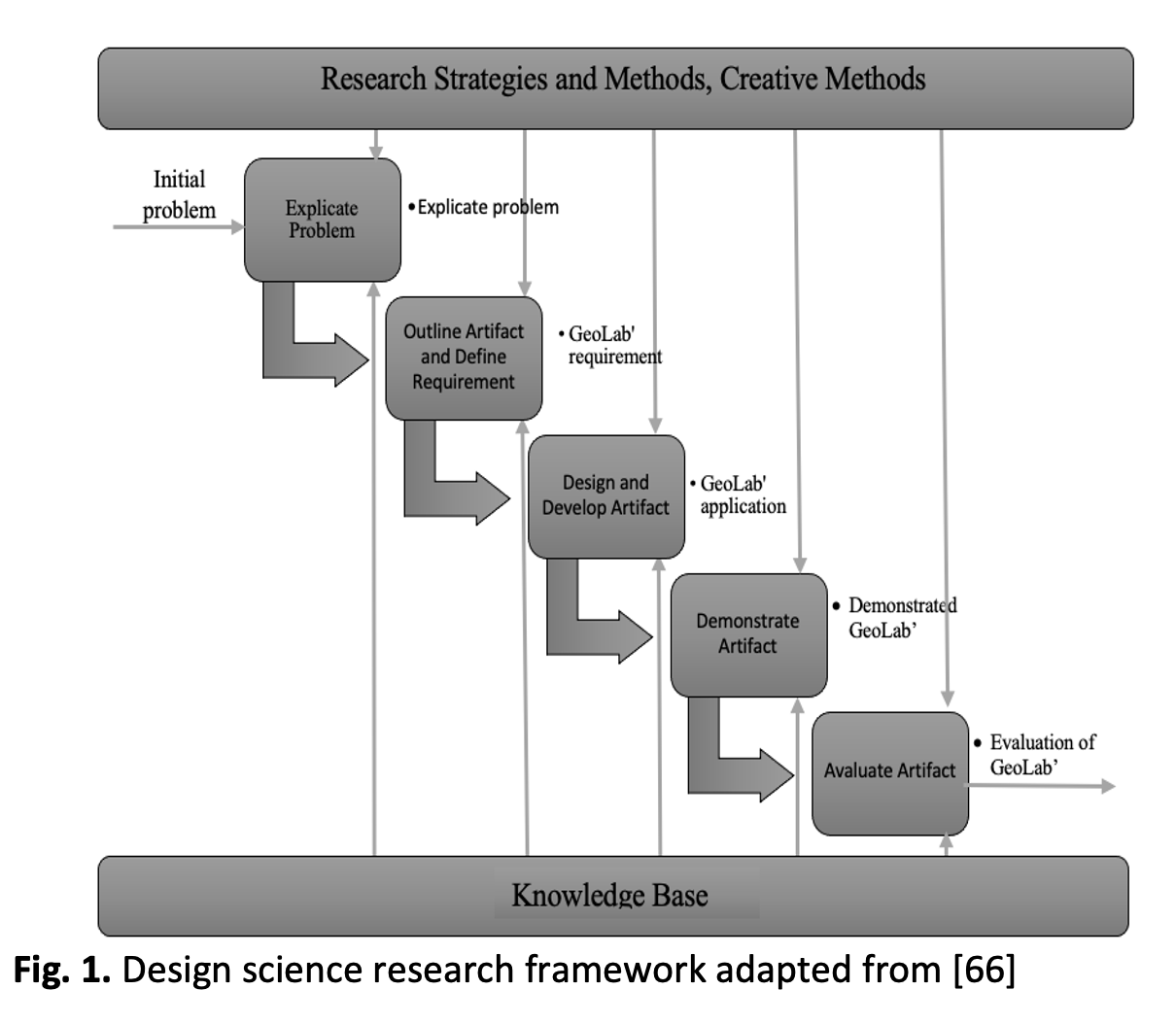Design, Development, and Evaluation of a Mobile Learning Application for Geography Education
DOI:
https://doi.org/10.37934/araset.38.1.109134Keywords:
GeoLab, Mobile Learning, Design science research, Geography EducationAbstract
This research focused on the application of the design science research approach in terms of developing GeoLab's mobile learning application for Geography Education in the context of higher education in Indonesia. GeoLab facilitates learning in the field of Geography Education on mobile devices. This application supports learning that can be accessed anywhere in higher education. Even this application provides interactive learning media with a 360-degree video display using Virtual Reality, Augmented Reality, and Mixed Reality features. The first part of this paper describes the analysis, design, and implementation of activities related to GeoLab's development. In addition, this study discussed the characteristics and scope of GeoLab's compliance with the nature and ideas of design science research. We evaluated GeoLab' in real learning, and an experiment was conducted with 126 second-year undergraduate students at a university in Indonesia. This study evaluates the feasibility, effectiveness, and ability of GeoLab' in Geography Education. We conducted a Usability Testing test on GeoLab applications'. The purpose of this Usability Testing is to assess the capabilities of GeoLab applications. Testing using Usability Testing, one of the Usability measurement tools, is the USE Questionnaire, which is divided into three main parameters, namely Usefulness, Satisfaction, and Ease of Use. The results of this study show that the GeoLab application can be considered easy to use by users in Geography learning based on the results of Usability Testing using the USE Questionnaire measurement device. This research offers suggestions on how to implement mobile learning that supports learning in the Geography Education curriculum.Downloads

Downloads
Published
2024-01-25
How to Cite
Riko Arrasyid, Mamat Ruhimat, Iwan Setiawan, Haikal Muhamad Ihsan, Wawan Darmawan, Agus Mulyana, … Rizal Akbar Darmawanto. (2024). Design, Development, and Evaluation of a Mobile Learning Application for Geography Education. Journal of Advanced Research in Applied Sciences and Engineering Technology, 38(1), 109–134. https://doi.org/10.37934/araset.38.1.109134
Issue
Section
Articles




























